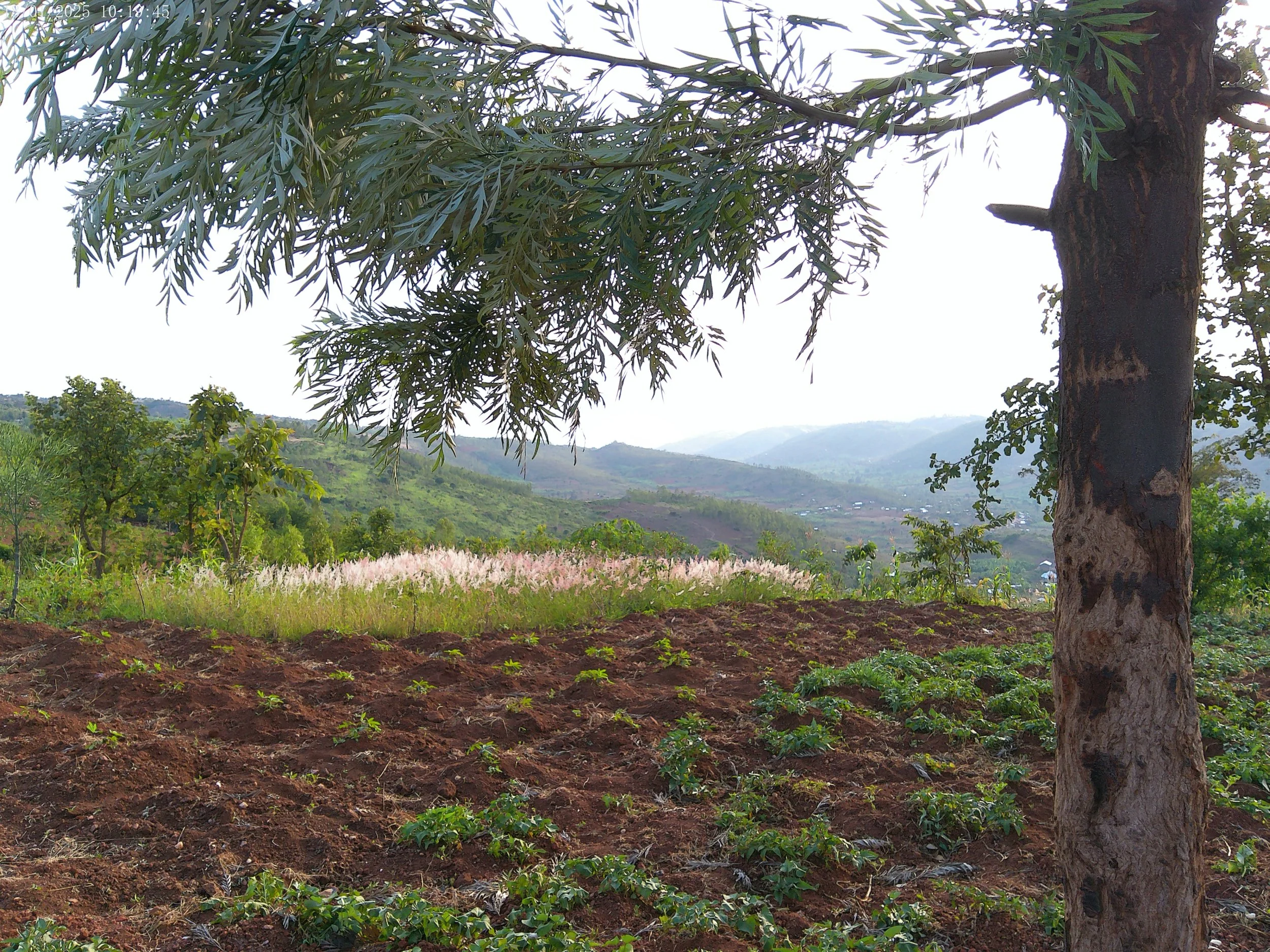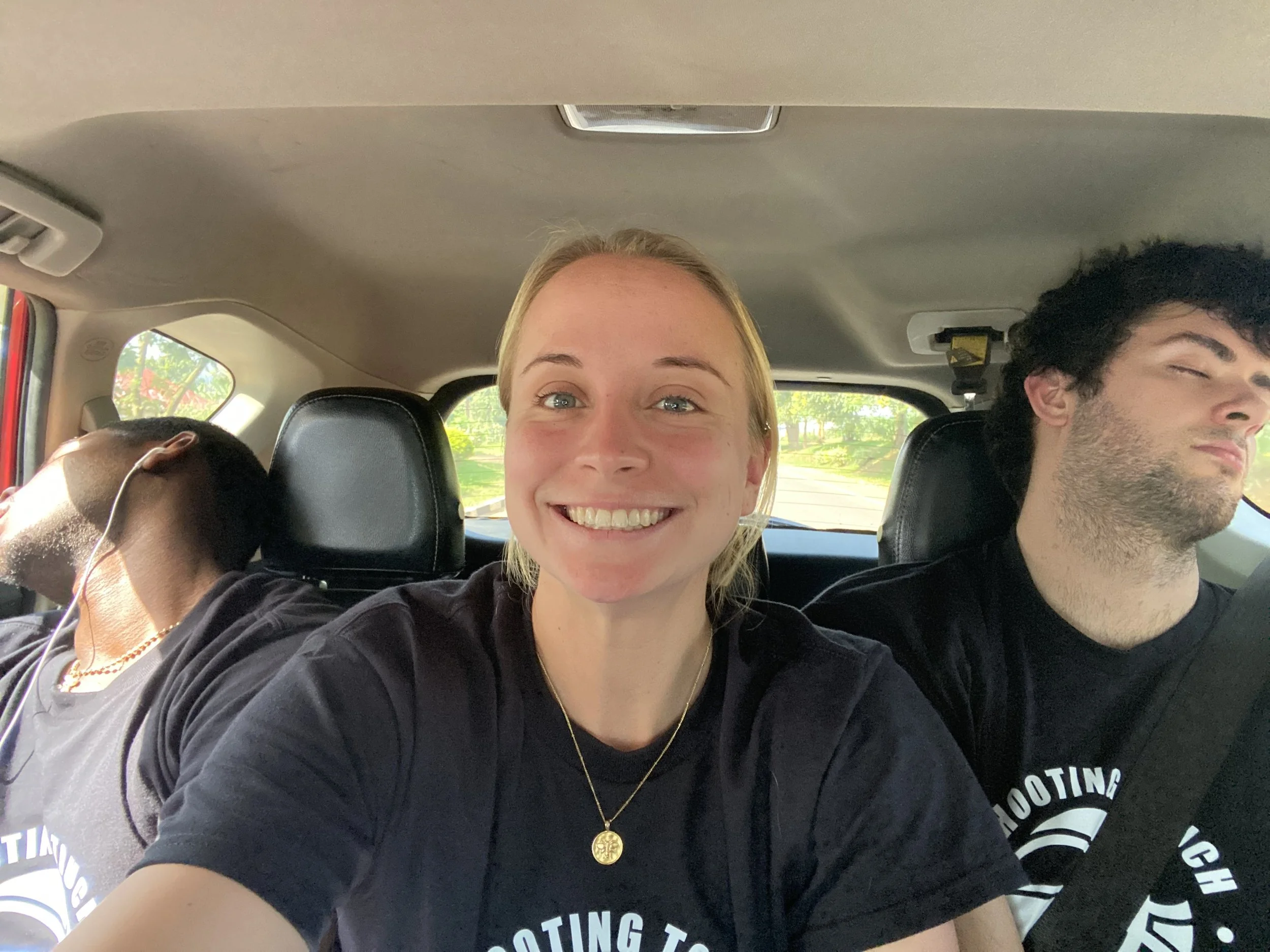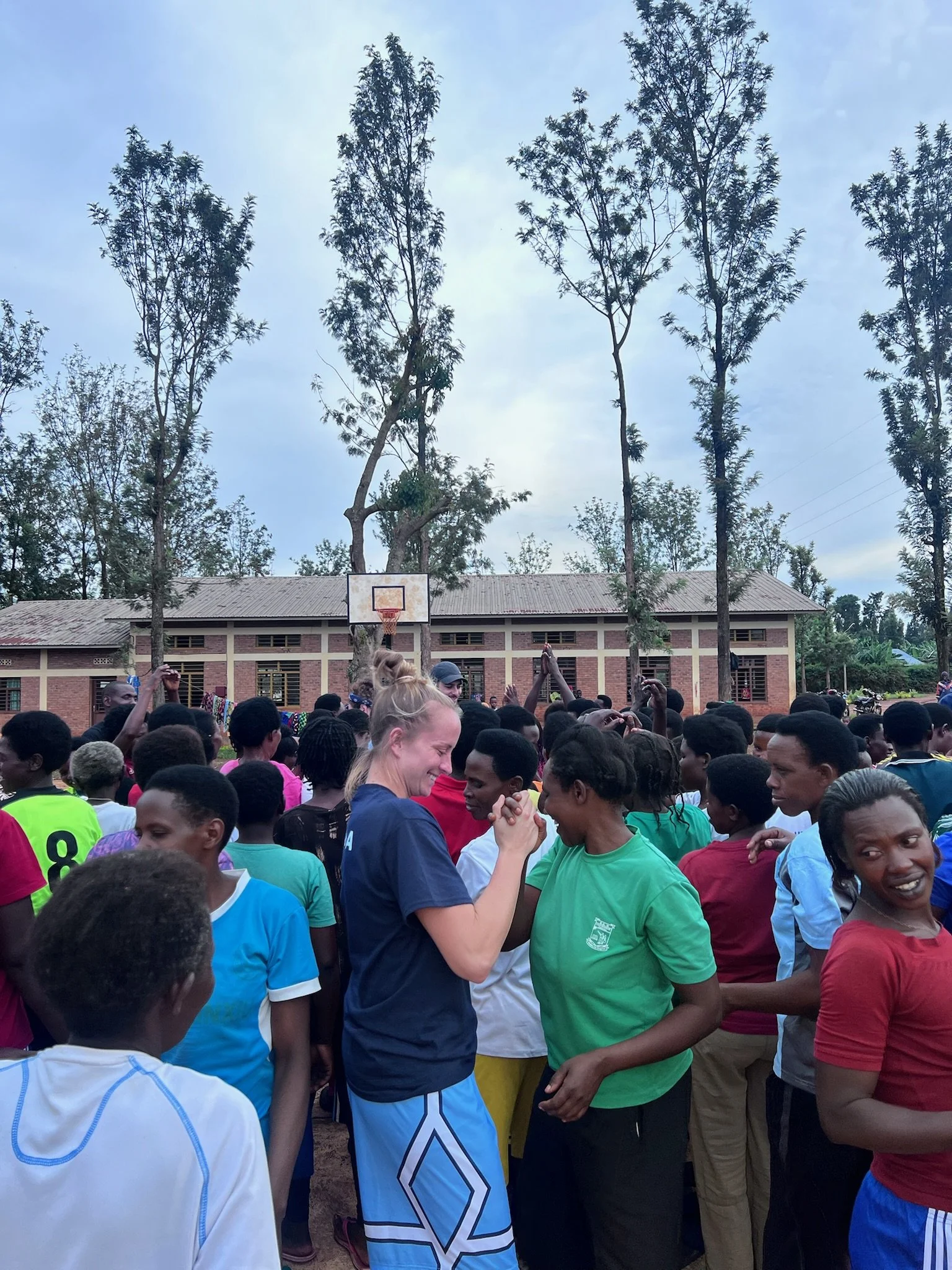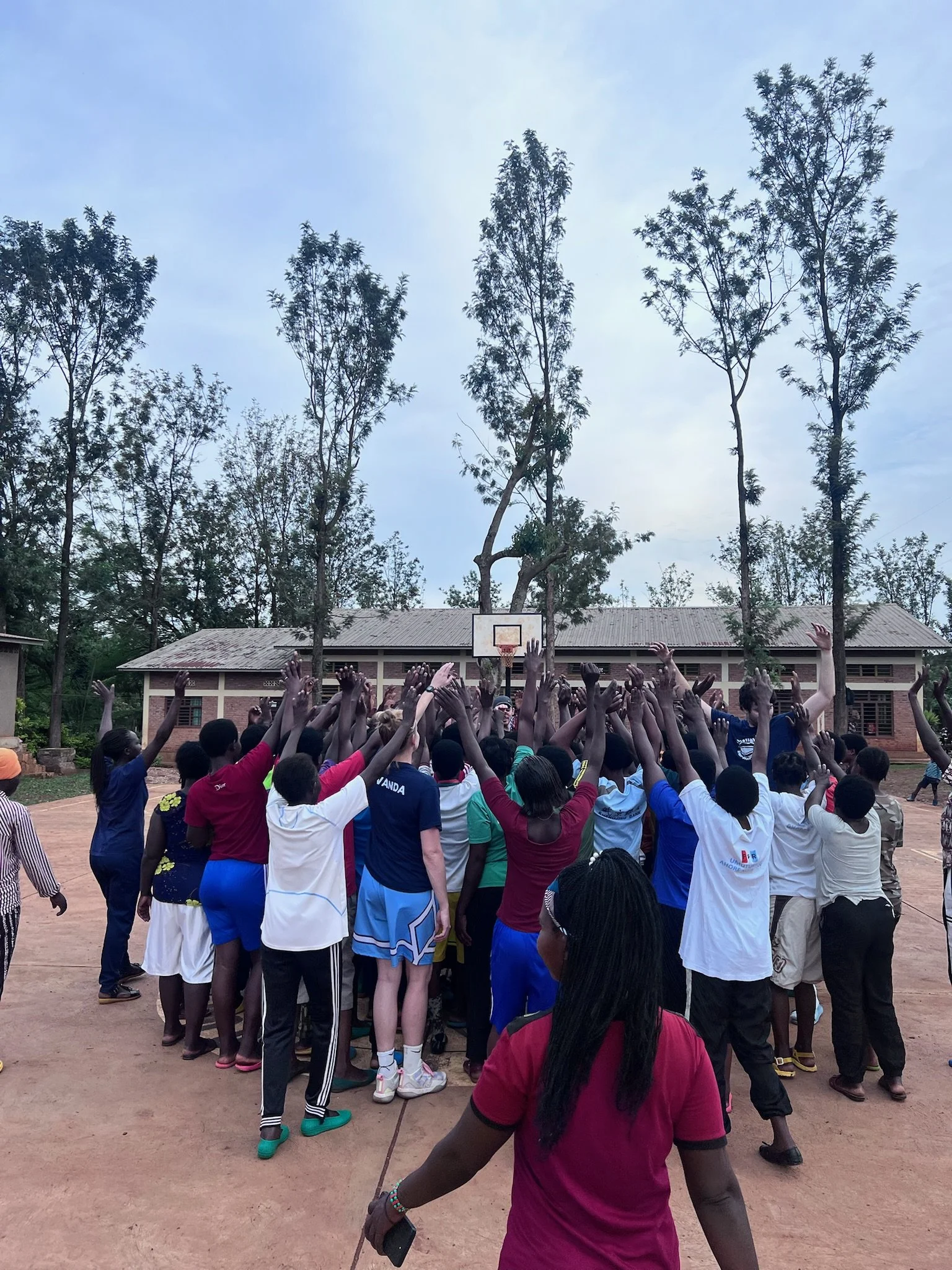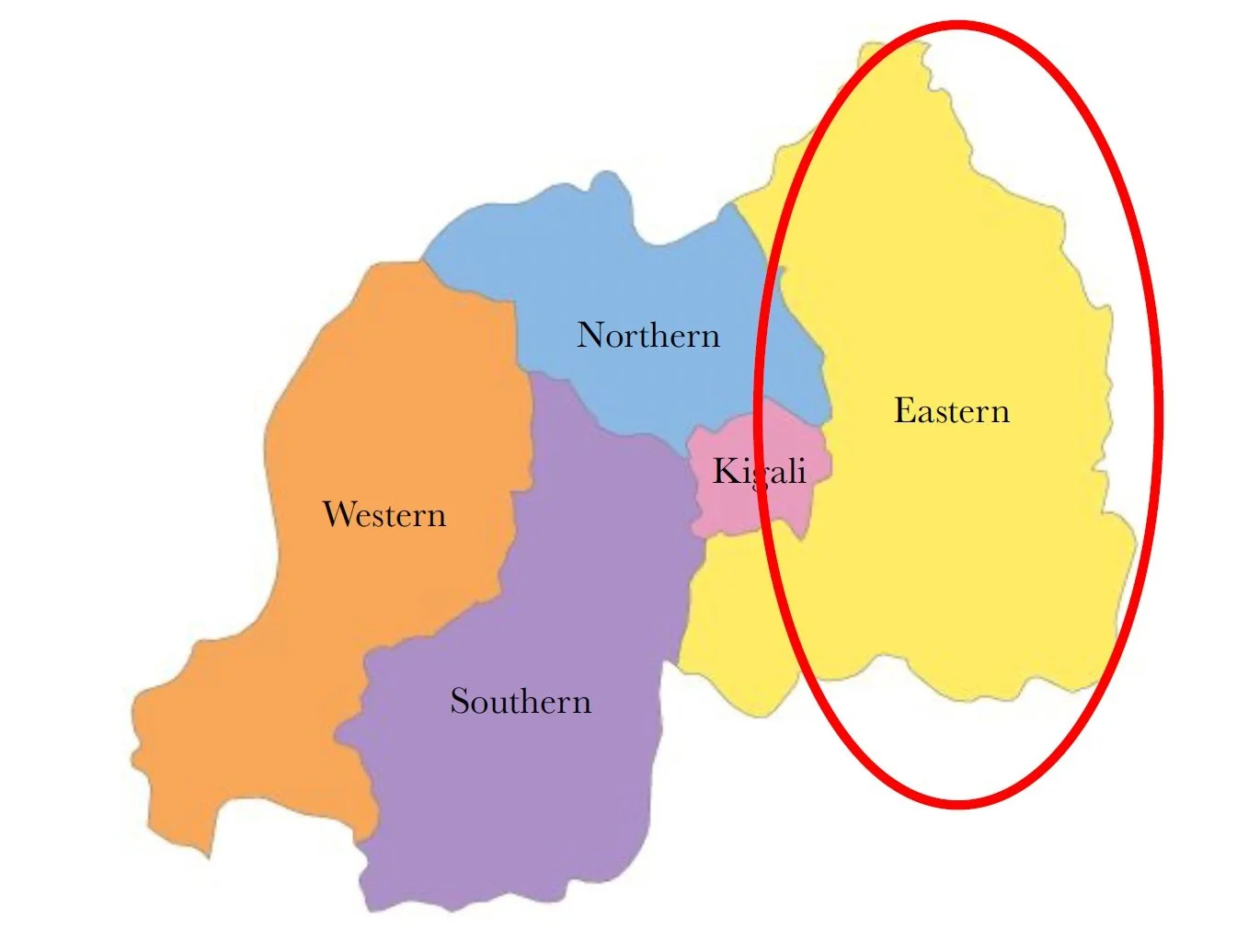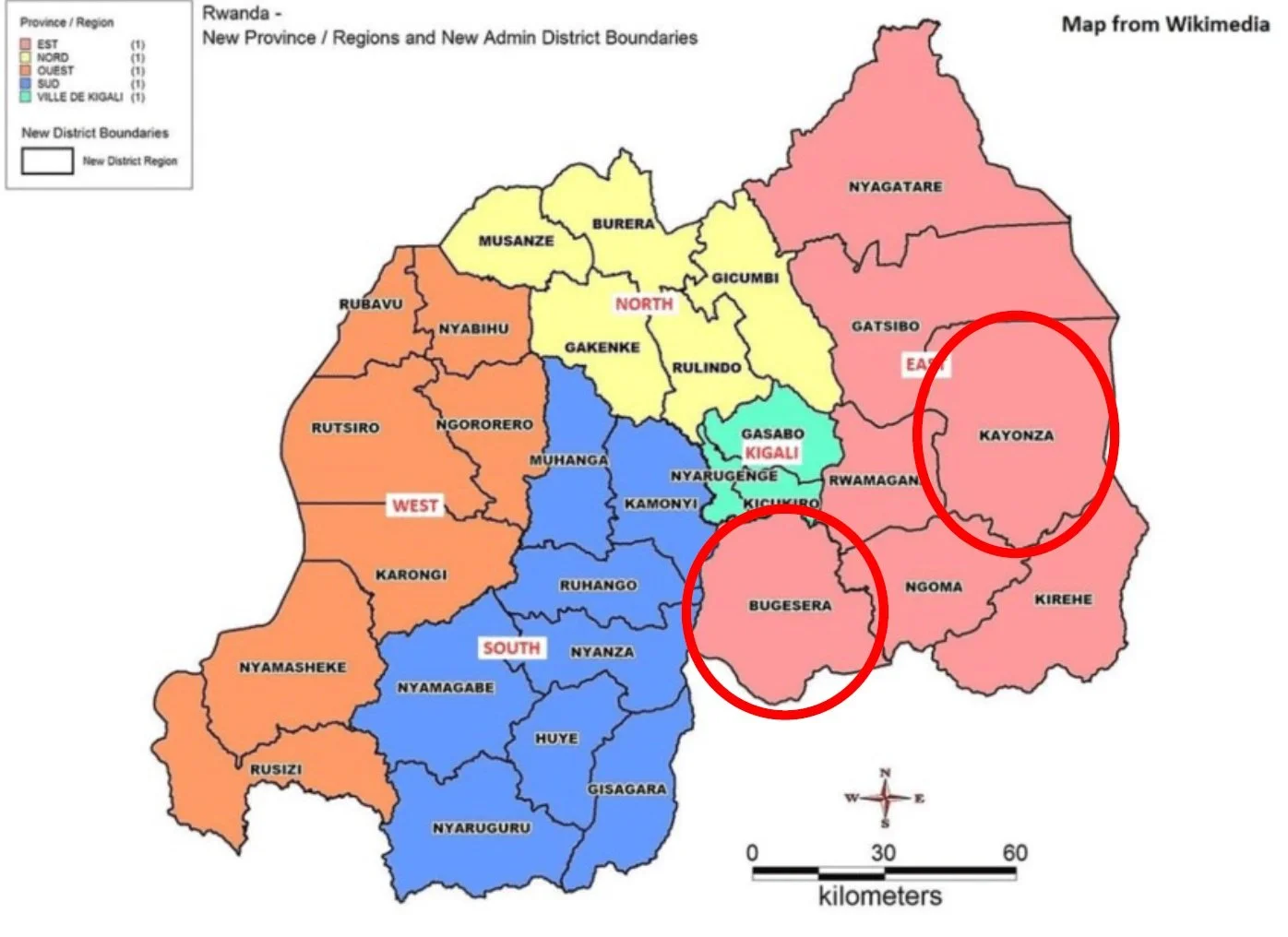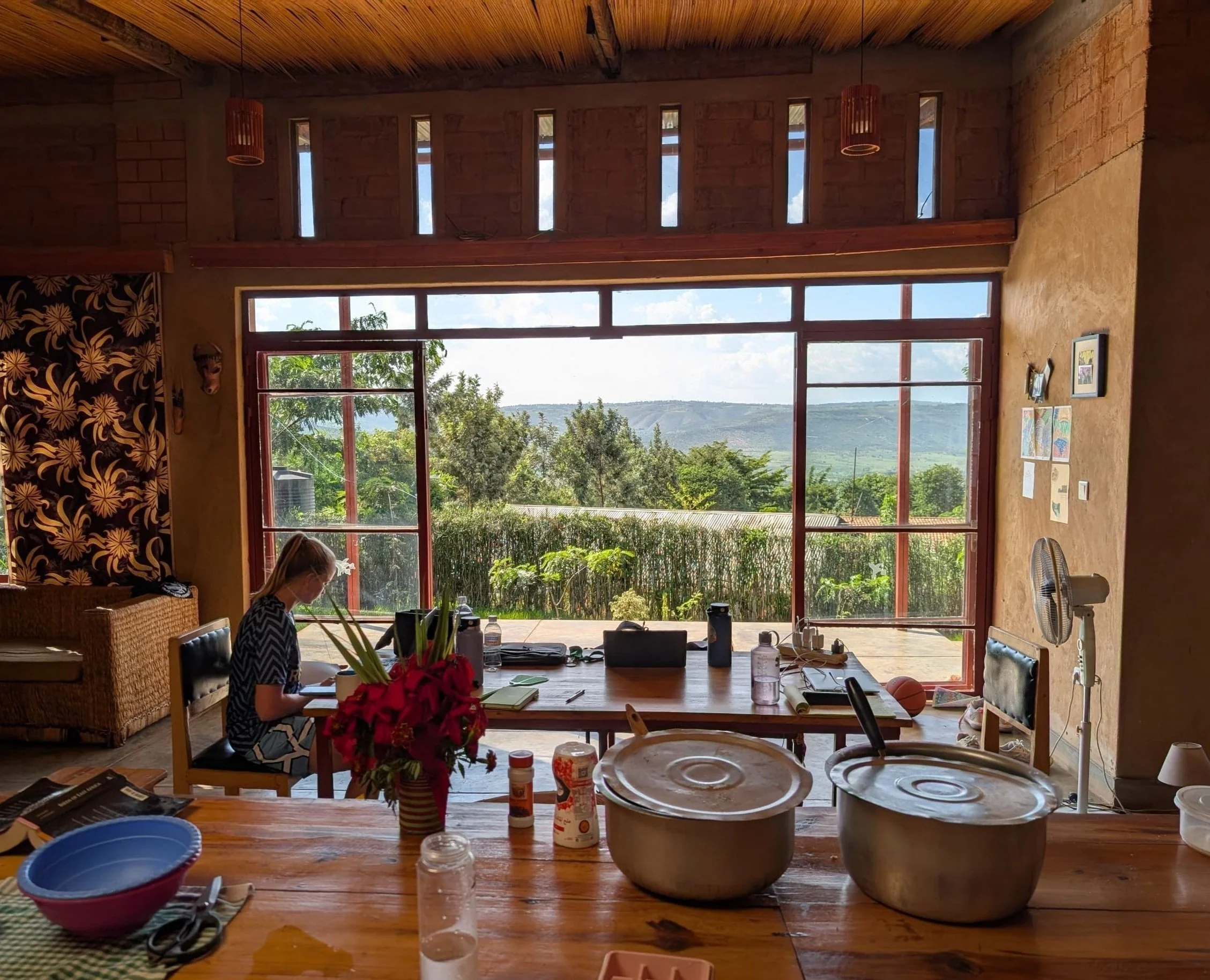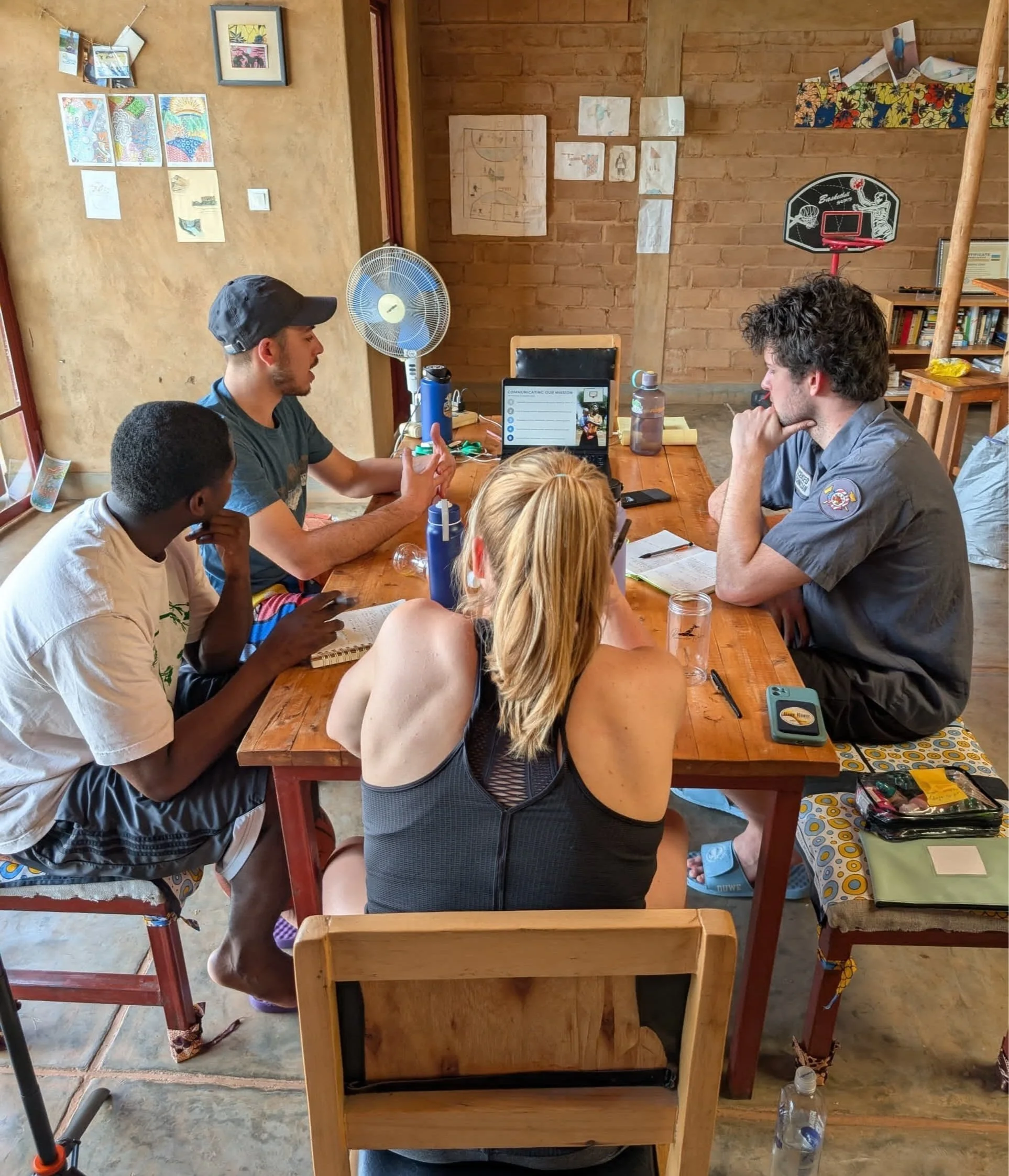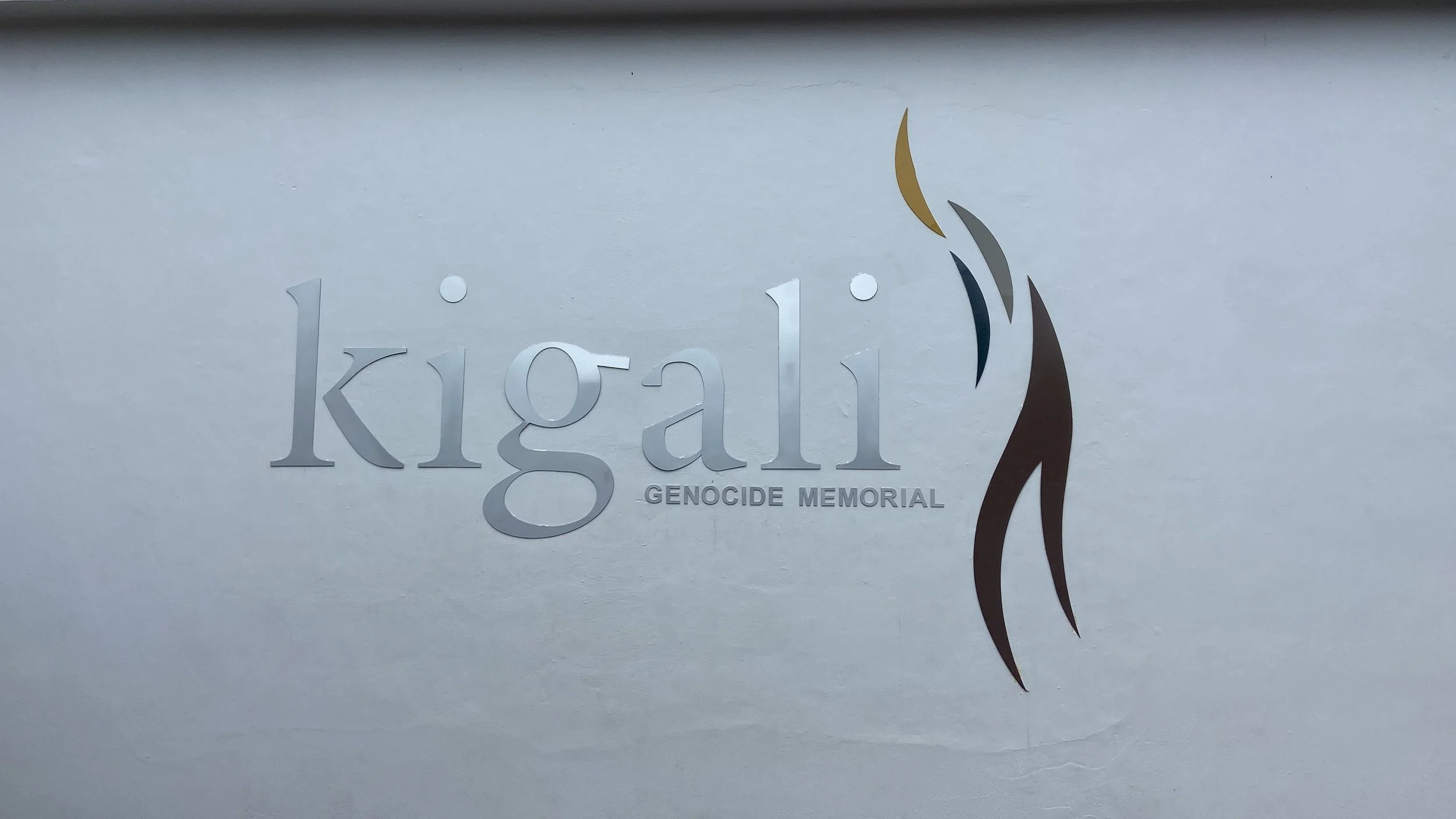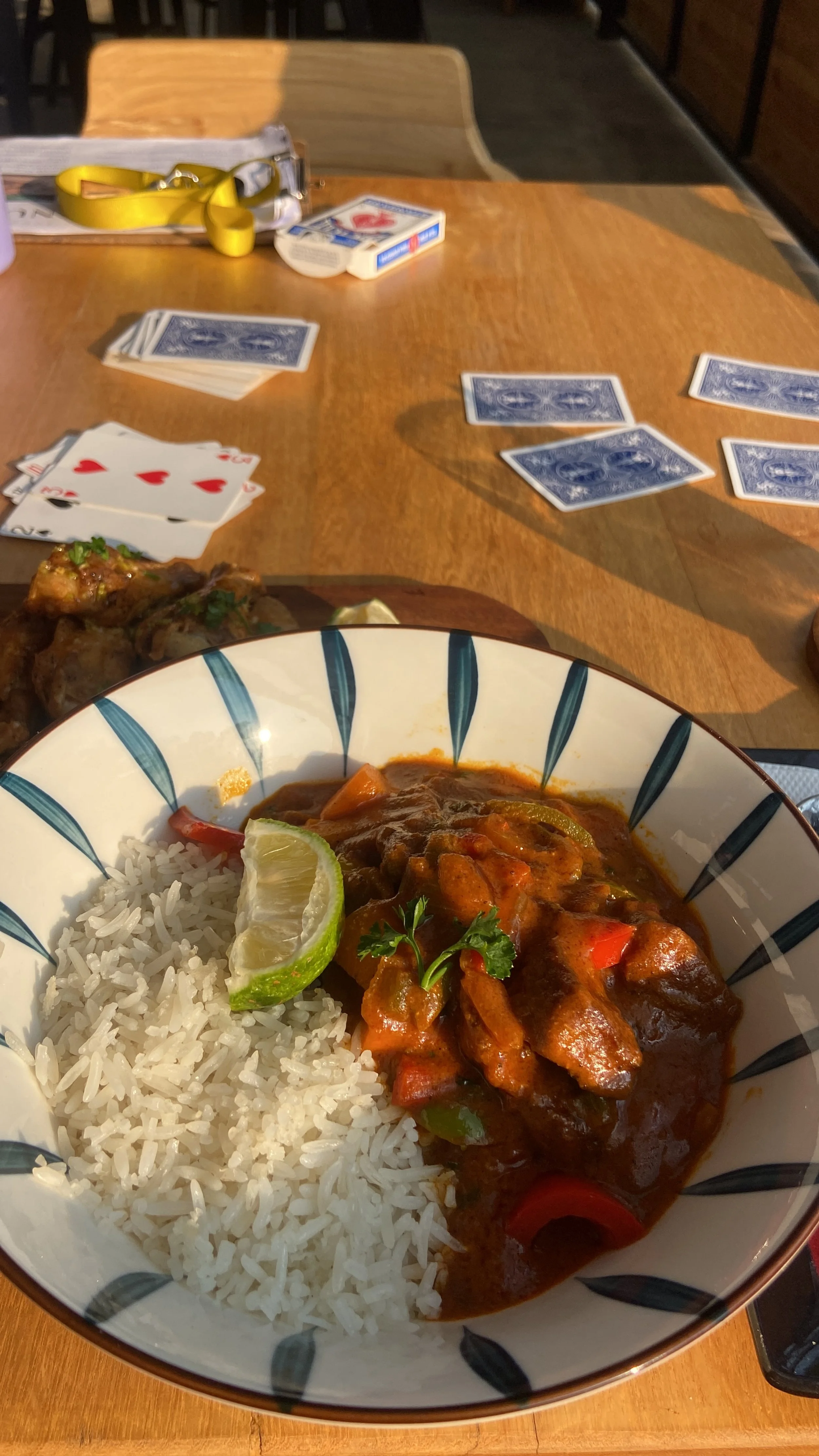*For all my boomers and gen x’ers reading this – a “life hack,” per Google’s AI overview, is ‘a strategy or technique adopted to manage one's time and daily activities in a more efficient way’
Acronyms
ST: Shooting Touch
STR: Shooting Touch Rwanda
Tuesday, January 14th
11:11
Starting my first blog at 11:11 feels like a good omen. I’ve been in Rwanda for five nights and six days. Time feels different here. Similar to many places around the world, the pace is undoubtedly slower in comparison to the New York minute. Nonetheless, a mixture of jet lag and the general newness of everything contribute to my warped sense of time. Even newness doesn’t feel like the appropriate word to capture the range of emotions I’ve experienced since touching down in Rwanda. While the tangible things, like the people, the city of Kigali, and the Fellowship Program are all new, I’ve felt a comforting sense of familiarity surrounding the aura of Rwanda. Perhaps from my former volunteer experience in Zambia and travels around the African continent or from the warm, welcoming arms of Chloe (ST Director of International Strategy and Programming), Sam (ST Director of Communications), Christelle (STR Program Director) and all of the Rwandan staff, I’ve felt at ease while exploring the city and rural villages of Rwanda. Or maybe, it’s the gut feeling I’ve had since 2020 (when I learned about the STR Fellowship program during my graduate studies in Massachusetts) that this would be the next step in my journey following my professional playing career.
The Fellowship onboarding process has been exhaustive and exhausting (see above), but in all the best ways. I didn’t realize how much I missed having structured yet free-flowing conversations that foster a deeper level of critical thinking and reflection. From examining personal goals and career aspirations to discussing diversity, prejudice, biases, and stereotypes, Chloe and Sam set the foundation for a safe environment to both share and unpack vulnerable and sometimes conflicting thoughts. This environment extended beyond the expat walls of ST’s Kigali apartment to our first meeting with ST Rwandan staff, in which we engaged in a cultural sensitivity training with Christelle. Shortly after, Benjamin (STR Health Monitoring & Evaluation Officer) and Denise (STR Community Engagement Coordinator) joined us for a guided discussion with prompts that encouraged each of us to share more about ourselves. Despite coming from all walks of life and places in the world, one recurring theme emerged in our discussion, that is, humans have so much more in common than what separates us.
Friday, January 17th
07:50
At this point we’ve been through most of our formal training and have seen four of the six villages where ST operates. I say formal because I know the ‘expat living in Rwanda’ style of informal learning will be nonstop over the next seven months. Through the process of visiting ST’s courts (seven total across six different villages), I’ve noticed that each village has its own personality, yet all are connected by the sense of community and love for the game that ST has fostered over time. Whether it’s the explosion of energy upon our arrival at Nyamirama, or the quiet, nervous giggles from players at Rilima, the passion and love are palpable.
Practice ending at Rukara.
Turikumwe! (“we are together”)
(If you don’t care for maps or geography, skip past this part!)
Before I continue, I want to share two maps for my visual learners. I know how confusing it can be to hear names of places without any understanding of the geography - that’s how I felt during my first week here! Below is a map of the five provinces that make up Rwanda. Kigali is the capital as well as a province - this is what I’m referring to when I write about the ‘city.’ ST operates in the Eastern Province, circled in red below.
Provinces of Rwanda (Source: Pinterest)
Breaking it down further, each province is divided into districts, with a total of 30 districts in Rwanda. ST operates in the two districts circled in red below - Bugesera (south of Kigali) and Kayonza (east of Kigali). Each district is further divided into sectors (not shown on map).
Districts of Rwanda (Source: ResearchGate)
ST has basketball courts in two sectors in Bugesera District, and four sectors in Kayonza District. For my detail-oriented geeks *cough dad cough* curious about the sector names - in Bugesera the sectors are Mayange and Rilima, and in Kayonza the sectors are Mukarange, Nyamirama, Rukara, and Rwinkwavu. When I write about the rural ‘villages,’ I’m referring to these sectors. Confused yet? To summarize, the two other Fellows (Duwe and Kojo) and I will be living in-between the Kigali (city) apartment and the ‘Rwink House’ (a house that ST has year-round in Rwinkwavu Sector) for the rest of January as we talk to coaches and find our own housing. I am looking for a place to live in Mukarange, as many of my responsibilities will involve activities/events in Kayonza District, and because it is well connected to Kigali for any trips I may need to make into the city.
Morning reading at the Rwink house.
Comms 101 training with Sam.
And finally, to address the number one question I received before coming to Rwanda - “So what exactly will you be doing in Rwanda? Coaching basketball?” - I’m still learning the answer. From discussions with Chloe and Christelle, I gather that many of my responsibilities will be systems-based, and consist of supporting the Rwandan staff in activities, such as conducting impact analysis of ST’s programs with Ben, supporting current partnerships and exploring new ones, helping plan donor trips and engaging with visitors on-ground, planning and supporting ST events each month (ex: the annual International Women’s Day Celebration & Health Testing event in March), along with many other ‘bigger picture’ tasks. So, while I will attend practices and interact with local coaches and beneficiaries, my role encompasses much more than coaching basketball.
Monday, January 20th
11:04
Yesterday on my four to five hour trek through the valley in Rwink with Chloe, we passed by two memorials of the 1994 Genocide against the Tutsi in Rwanda – actual locations where bodies were found while digging (for mining purposes), that had been turned into memorial sites. During our onboarding training, we discussed how sites like these are numerous around the country, and continue to be identified as development expands. These memorials are significant to Rwandans on a level that I will never be able to fully grasp, but for an outsider like me, they function as a humbling reminder of the growth and healing that Rwanda has achieved since its darkest days. I find it truly admirable that Rwanda does not shy away from confronting its traumatic past, as reflected by the multiple museums and memorials across the country, nor do Rwandans try to recount the history in a way that downplays the tragedies and atrocities that the country faced. Rather, they have taken ownership of the efforts to create a better future, and are focused on how they can continue to heal and rebuild as one unified people. There are many things that the world, especially the U.S., could learn from this response and recovery.
If you ever find yourself in Rwanda, a visit to the Kigali Genocide Memorial Museum is a must. Undoubtedly, it is a heavy and emotionally taxing visit, but it is imperative that we educate ourselves, and in doing so, challenge any negative and/or damaging perceptions we may hold of Rwanda and the wider-African continent - perceptions that are likely grounded in outdated and misleading Western narratives created to grab headlines. (Read: There is so much more to Rwanda than the historic tragedy it is known for worldwide, and I’ve had the privilege to witness and experience that firsthand. If you have the means, you should come experience it too).
A ‘search for deeper purpose’ stroll in Rwinkwavu.
Wednesday, January 22th
12:02
The days are all starting to blur together in a paradoxical storm of busy calmness. There are still so many things to do, but getting some tasks checked off my list is contributing to the ‘settled’ feeling I’ve been experiencing more frequently. I’m still searching for a house with the help of Muhoza (STR coach in Mukarange Sector), but simply getting a jump on the process has relieved a bit of my mounting anxiety. I’m also starting to grasp how and where I fit into the bigger STR picture thanks to my meeting with Christelle this morning. I left it feeling energized and eager to use my strengths to support Denise, Ben, and other local staff. Don’t get me wrong, I’m grateful that delivering Amazon packages helped keep me busy and re-build my depleted savings after living in the UK for a couple of years, but for (what feels like) the first time, I am in a position to apply learnings from my undergraduate and graduate degrees, all while engaging in meaningful work that may bring me closer to finding my deeper purpose.
16:22
Yesterday Kojo and I set up our bank accounts, which ended with a big inhalation of the fresh, outdoor air upon exiting the bank three hours later. Reflecting on this process (i.e., my first experience of Rwandan bureaucracy on my own) brings to light how as humans, we are relatively good at adjusting. If that same process took three hours at home, the bank would likely lose enough customers to go out of business or be burned down by impatient New Yorkers with their endless to-do lists. In Rwanda, however, adjusting your expectation of wait times and work pace is a natural process. You learn to bring the playing cards with you to dinner or a book to an appointment, such as when meeting a friend for coffee. You learn to appreciate the care and delicacy put into the preparation of each drink and meal. You learn that having items ‘stocked’ in Rwanda is often not possible, so business owners and workers are literally running to get the items you need the moment you request them. Above all, you learn that impatience does not improve the service or your mood, so you might as well build the virtue of patience. Lastly, you learn little life hacks - for example, if you want food ready at a certain time, order ahead by at least an hour. Or, how it’s helpful to have “a guy” for multiple things – whether it’s to fix a car headlight, deliver water, get a ride, or get passport-sized headshots for applications – always save that contact and/or location.
Friday, January 24th
15:36
Up to this point, I’m still learning the importance of giving myself grace as I settle into a completely new setting, and that experience comes from a series of trials and errors. And just when I have that “I understand it now” epiphany, my next shot will undoubtedly be an airball.
But hey, at least I’m shooting my shot, right?

